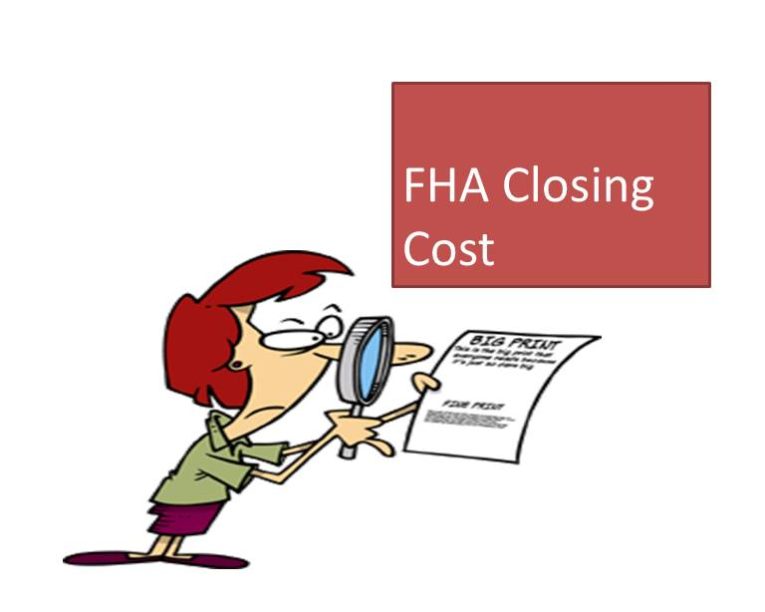Most people focus on the current mortgage interest rates when shopping for a home loan. Interest rates are certainly important, but they do not represent the only significant expense associated with financing a home.
When you are making plans to purchase a new home, it is important to consider the big picture of all the fees associated with getting a mortgage, rather than focusing solely on interest rates.
Before you can decide just how much house you can afford to purchase, you need to look at an overall summary of mortgage fees so that you will have a clear understanding of all the expenses involved.
Many factors can influence the total amount of money you need to borrow, as well as the final out-of-pocket requirement for closing the loan.
Down Payment
Most homebuyers will be required to make a down payment in order to be considered for mortgage loan approval. The amount of money an individual is required to put down may vary significantly based on a variety of factors. This includes the cost of the home, the applicant’s credit history, the borrower’s qualification for down payment assistance programs, and many other variables.
Typically, homebuyers are required to make down payments ranging from three (3) to twenty (20) percent of the home’s purchase price. Dependent upon the product type the lender is offering that is in line with the borrower’s qualification and financial circumstances. Those needs include the liquid assets saved for purchasing a home, the borrower’s debt to income (DTI), and the entire credit file to name a few.
The GSEs, Fannie Mae, and Freddie Mac have mortgage products to accommodate those individuals with less down payment funds, and closing costs. Fannie Mae has the HomeReady Product, which allows a 3% down payment and flexible sources for closing cost.
Closing Cost Percentage
The closing cost typically amounts to 3 to 6 percent of the loan amount. However, there can be variations here and there.
The Closing Cost Broken Down
Prepaid Interest
The day you close on your home loan, you will be required to pay the interest that will accrue on the loan between the current time and the day the first monthly payment is due. If your loan closes on the 15th of the month, your prepaid interest will be for the remaining days of the month.
If you close on April 15, your first payment will be due on June 1 as interest payments are paid in arrears.
Homeowners Insurance
When you finance a home, the premium for your first year of homeowners’ insurance coverage is due at the closing table. No mortgage company will allow a sales transaction to take place without being certain that insurance coverage is in effect the moment the title transfers into the mortgagee’s name. As with prepaid interest, many homebuyers who are able to do so elect to include their initial homeowner’s insurance premiums in the total amount financed.
Escrow Account
As long as you have a mortgage on your home, your lender is likely to require you to make escrow payments toward your property taxes and homeowners insurance premiums. This money goes into an escrow account, which the lender uses to make sure these important expenses are paid when they are due. Requiring escrow accounts protects the lender and the borrower for that matter. The lender has a legal interest in making sure the subject property is sufficiently insured.
Title Insurance
One of the most important components of a home loan transaction is the process of verifying that the seller has the legal right to transfer the title of the home to the buyer. In addition to verifying that the title of the home is clear prior to closing, it is advisable to protect the home from future title problems tied to the actions of past owners with a title insurance policy.
Sellers are typically responsible for paying for title research since this work is required to verify that they do in fact own the property and have a legal right to transfer it to the buyer. Homebuyers, however, usually pay for the accompanying title insurance policies, which protect them against potential prior claims to the home’s title that might surface once the transaction has been completed.
Mortgage lenders require title insurance policies as a condition of closing.
What Are Mortgage Points? *Fully explained here
Points within your closing cost actually mean that you have requested a certain interest rate, (lower than the rate you have been offered) or to buy-down the current rate.
Closing Cost Fees Broken Down *Fully explained here
Origination Fee
Discount Points
Underwriting Fee/Processing Fees
Courier Fee
Rate Lock Fee
Fees Paid To Third Parties
Appraisal Fee
Credit Report Fee
Closing Attorney Fees
Title Insurance Policy
Tax Service Fee
Notary Fee
Closing Protection Letter
Survey – if required and
A number of additional expenses must be considered in any comprehensive summary of mortgage fees. For example, when the title to a property is transferred, a warranty deed must be created, and the changes to the title of the property must be recorded.
Additionally, lenders require property appraisals, surveys, and termite inspections prior to approving a loan. The fees associated with these legal and real estate services are part of the closing costs for a home loan. The buyer or seller, based on the terms agreed upon in the purchase agreement, can pay for them.



